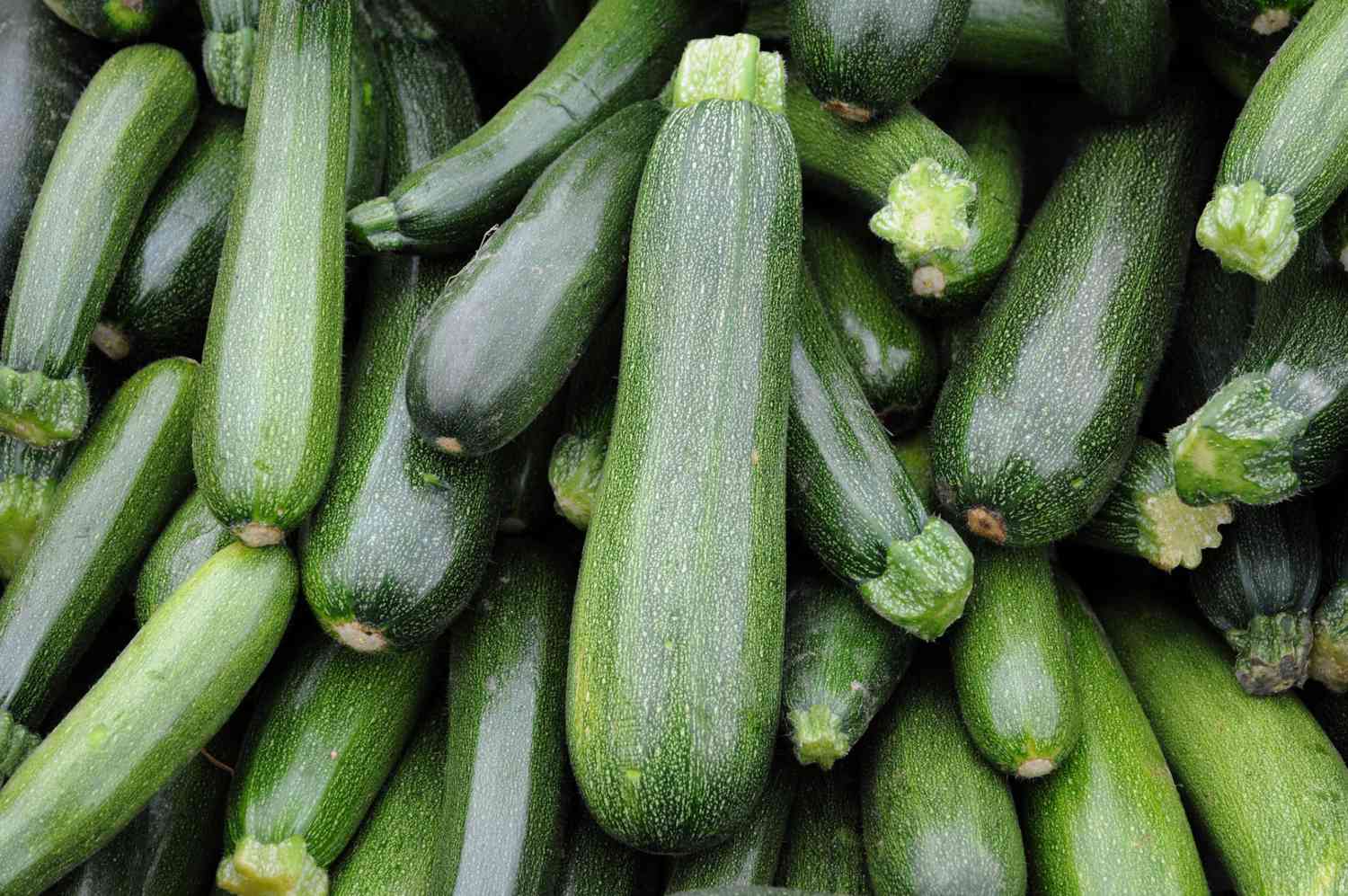
Zucchini is a versatile and nutritious vegetable that has gained popularity in recent years. Whether you love it grilled, sautéed, or baked into bread, there’s no denying the versatility and deliciousness of zucchini. But what do you really know about this green summer squash? In this article, we will explore 17 fascinating facts about zucchini that will not only pique your interest but also deepen your appreciation for this humble vegetable. From its origins and nutritional value to its various uses and fun trivia, get ready to dive into the fascinating world of zucchini. So grab a cup of tea and let’s explore the depths of this beloved vegetable together!
Key Takeaways:
- Zucchini is a low-calorie, nutrient-packed fruit that can be enjoyed in various forms, from raw to baked goods, offering a guilt-free and versatile addition to your meals.
- With its high water content and fiber, zucchini promotes hydration, aids in weight management, and can be used as a natural moisturizer, making it a valuable and delicious ingredient for overall health and wellness.
Zucchini is a Fruit Disguised as a Vegetable
Contrary to popular belief, zucchini is botanically classified as a fruit due to its origin from a flower and the presence of seeds. However, it is commonly referred to and treated as a vegetable in culinary applications.
Zucchini is a Low-Calorie Veggie Powerhouse
If you’re watching your calorie intake, zucchini is your go-to vegetable. With just 17 calories per 100 grams, zucchini is a guilt-free addition to your meals, providing essential nutrients without the extra calories.
Zucchini is Packed with Nutrients
Despite its low calorie count, zucchini is rich in various vitamins and minerals. It is an excellent source of vitamin C, vitamin A, potassium, and folate, which contribute to overall health and wellbeing.
Zucchini Helps to Maintain a Healthy Digestive System
One cup of zucchini contains around 2.5 grams of dietary fiber, aiding in proper digestion and preventing constipation. Including zucchini in your diet can help you maintain a healthy digestive system.
Zucchini Promotes Hydration
Zucchini has a high water content, which helps to keep your body hydrated. Staying hydrated is crucial for optimal bodily functions and can support healthy skin, digestion, and overall wellbeing.
Zucchini Comes in Various Shapes and Sizes
Zucchini is incredibly versatile when it comes to its appearance. It can be found in various shapes and sizes, ranging from classic cylindrical to round, and even scalloped varieties.
The World’s Heaviest Zucchini Weighed Over 65 lbs
In 2014, a zucchini grown in Canada set a world record, weighing an astonishing 65.67 pounds. This giant zucchini showcased the remarkable potential of this vegetable to reach enormous sizes under ideal growing conditions.
Zucchini Can Be Eaten Raw or Cooked
Whether you’re a fan of crunchy textures or prefer softer ingredients, zucchini offers versatility in its culinary applications. It can be enjoyed raw in salads, spiralized into noodles, grilled, roasted, or sautéed to create a delicious side dish or main course.
Zucchini Can Be Used in Baked Goods
Zucchini’s mild flavor and moisture content make it an excellent addition to baked goods. It adds moisture, texture, and nutritional value to muffins, bread, and even cakes without overpowering the overall taste.
The Flower of the Zucchini Plant is Edible
While zucchini is primarily appreciated for its fruit, the blossom of the zucchini plant is also a delicacy. The flowers can be harvested and stuffed, battered, or added to dishes for a touch of culinary elegance.
Zucchini Can Help Maintain Healthy Weight Management
Due to its high water and fiber content, zucchini keeps you feeling full for longer periods, aiding in weight management. It satisfies your hunger without adding excessive calories, making it an ideal addition to a balanced diet.
Zucchini Can Be Used as a Natural Moisturizer
Thanks to its high water content, zucchini can be used topically as a natural moisturizer for the skin. It helps to hydrate and nourish the skin, leaving it feeling soft, supple, and rejuvenated.
Zucchini Flower Pollination is Primarily Done by Bees
Bees play a pivotal role in the pollination of zucchini flowers, ensuring the production of zucchini fruit. Their buzzing activity transfers the pollen from the male flowers to the female flowers, leading to successful fertilization.
Zucchini Can Be Stored in the Fridge for Up to a Week
To prolong the shelf life of zucchini, it is best stored in the refrigerator. Properly wrapped or stored in airtight bags, zucchini can maintain its freshness for up to a week, allowing you to enjoy it at your convenience.
Zucchini Can Be a Substitute for Pasta
For those seeking a healthier alternative to traditional pasta, zucchini can be spiralized or thinly sliced to create “zoodles.” These zucchini noodles can replace pasta in various dishes, providing a low-carb, gluten-free option.
Zucchini Has Medicinal Properties
Zucchini contains certain compounds that demonstrate anti-inflammatory and antioxidant properties. Regular consumption of zucchini may contribute to reducing inflammation and promoting overall health.
Zucchini Can Be Used in Sweet and Savory Dishes
While zucchini is commonly associated with savory dishes, such as stir-fries and casseroles, it can also lend its versatile nature to sweet treats. Zucchini can be grated and used in cakes, muffins, and bread, adding moisture and a subtle sweetness.
Now that you’re armed with these 17 fascinating facts about zucchini, embrace its culinary possibilities and explore the numerous ways to incorporate this nutritious and flavorful vegetable into your meals!
Conclusion
In conclusion, zucchini is a versatile and nutritious vegetable with a variety of benefits. Whether you want to incorporate it into your salads, stir-fries, or even make zucchini noodles, this vegetable never fails to impress. Not only is it low in calories and high in fiber, but it also contains essential vitamins and minerals that support overall health and wellbeing. Additionally, zucchini is rich in antioxidants and water content, making it a great choice for hydration and maintaining a healthy complexion. So, next time you’re in the market for a delicious and healthy vegetable, don’t forget to grab some zucchini!
FAQs
1. How do you cook zucchini?
There are various ways to cook zucchini, including sautéing, grilling, baking, and even spiralizing it into noodles. It can be enjoyed in stir-fries, soups, salads, and even as a substitute for pasta.
2. What are the health benefits of zucchini?
Zucchini is low in calories and packed with nutrients such as vitamins A, C, and K, as well as minerals like potassium and magnesium. It also contains antioxidants that help boost immunity and protect against chronic diseases.
3. Can you eat raw zucchini?
Absolutely! Zucchini can be eaten raw and adds a refreshing crunch to salads and cold dishes. It is also delicious when lightly marinated or used as a dip with a side of hummus or tzatziki.
4. How should I store zucchini?
Store zucchini in the refrigerator in a perforated plastic bag or wrap it in a slightly damp cloth to keep it fresh. Avoid washing it before storing, as the excess moisture can accelerate spoilage.
5. Is zucchini a fruit or a vegetable?
Although zucchini is commonly referred to as a vegetable, botanically, it is classified as a fruit. It originates from the Zucchini squash plant, which produces edible fruits.
6. What are some creative ways to use zucchini?
Besides the traditional methods of cooking zucchini, you can get creative by making zucchini fries, zucchini bread, or even zucchini pizza crust. You can also use it as a filling for stuffed peppers or as a topping for pizza and pasta dishes.
7. Can you freeze zucchini?
Yes, you can freeze zucchini to extend its shelf life. However, it is recommended to blanch it first for a few minutes before freezing to help preserve its texture and flavor.
8. Are there different varieties of zucchini?
Yes, there are many varieties of zucchini, ranging in size, shape, and color. Some common varieties include green zucchini, yellow zucchini, and pattypan squash.
9. Does zucchini have any culinary uses?
Absolutely! Zucchini is incredibly versatile and can be used in a wide range of culinary creations. From zucchini lasagna to zucchini muffins, the options are endless.
10. Can zucchini be used as a substitute for pasta?
Yes, zucchini can be spiralized into thin strands to make a healthy and low-carb substitute for traditional pasta. This is a great option for those following a gluten-free or low-carb diet.
Hungry for more zucchini knowledge? Satisfy your curiosity by exploring zucchini noodles nutrition facts, perfect for health-conscious pasta lovers. Zucchini bread enthusiasts can indulge guilt-free after learning its nutritional profile. Discover how Pero Family Farms elevates zucchini spirals from ordinary to extraordinary with their nutritional superpowers.
Was this page helpful?
Our commitment to delivering trustworthy and engaging content is at the heart of what we do. Each fact on our site is contributed by real users like you, bringing a wealth of diverse insights and information. To ensure the highest standards of accuracy and reliability, our dedicated editors meticulously review each submission. This process guarantees that the facts we share are not only fascinating but also credible. Trust in our commitment to quality and authenticity as you explore and learn with us.


